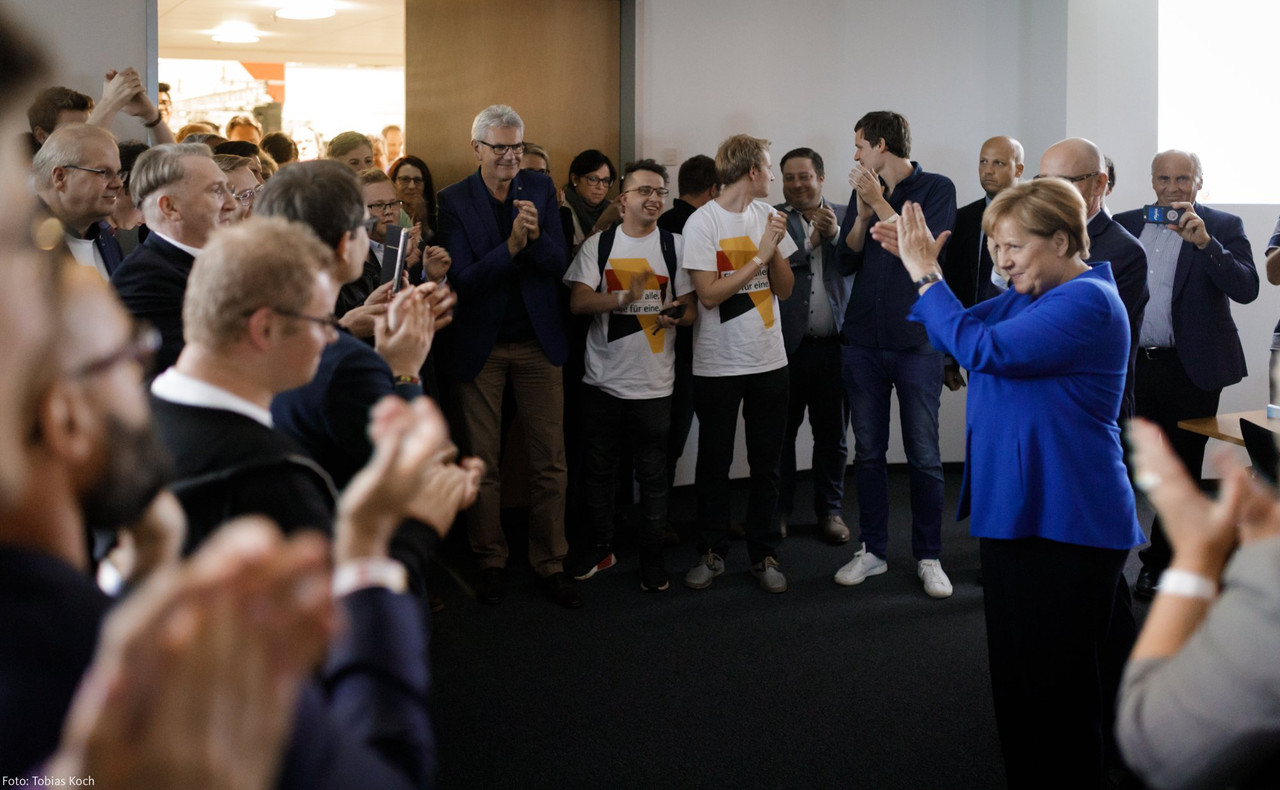About half of the 90-minute debate was spent on the issues of refugees, integration and Turkey. This has been criticised by many observers. The Sueddeutsche Zeitung called them AfD issues and criticised the moderators of the debate for framing it in such a way that the fears of people were stoked, at the expense of questions related to attacks on German refugee homes, the conditions in refugee camps in Libya or how to avoid more deaths in the Mediterranean.
The main difficulty for Martin Schulz was that his party had been holding the reins, together with Merkel’s CDU-CSU, for the past four years. He could therefore not directly attack the incumbent because his party had essentially agreed most policy issues over the past 4 years.
Refugee crisis
On the refugee crisis, Schulz basically agreed with Merkel on welcoming refugees, but said he would have advocated a European solution, with greater involvement from the other European neighbours.
Merkel countered that Germany should have gotten involved earlier in the refugee crisis in Turkey and taken more care to examine the conditions of refugee camps in Jordan and Lebanon. She added “but this applies to me as well as the relevant foreign affairs minister”, referring to SPD politician Frank-Walter Steinmeier.
However, both agreed that the “welcoming culture” of Germany was right.
Turkey
Even on Turkey, the SPD candidate failed to attack Merkel, when he advocated to break off EU membership negotiations with Turkey because of its slide towards authoritarianism and the arrests of German citizens (and journalists) in particular.
Merkel’s CDU has been arguing for years that Turkey should not become an EU member. Merkel agreed with Schulz on that point and on the point that pre-accession aid should be stopped but pointed out that dialogue was still necessary to solve the current problems. She added as well that she needed to speak with the other European heads of state and government to get an agreement on those issues.
Missing topics
Social media was buzzing with the policy issues that had been missing or were just glossed over. Brexit, digitisation, education, the environment and jobs had been missing from the debate--and the fault was put squarely at the moderators’ feet.
Social justice was just touched on. Schulz said:
“Sure, Germany is a wealthy country, but not all people in Germany are wealthy.”
On retirement age, Merkel stated that she was against raising the retirement age to 70, and that it would not go over 67. She added that flexi-retirement allowed people to work longer, but that it was a challenge for many, such as nurses or roofers. Schulz countered by saying Merkel had been categorically against the Maut (the motorway toll), which was now put in place.
Reactions
Both candidates were described as being civil, polite and respectful, and that the debate had been policy-oriented but boring. This was often put in contrast with debates on Brexit, the latest UK parliamentary elections and the US presidential elections.
In a TV show after the debate, former CSU defence minister Karl-Theodor zu Guttenberg said: “I had the feeling they would soon hug each other. The points of friction were missing.”
Others were quick to point out that they had just witnessed the first round of coalition talks between CDU and SPD.
Some commentators argued that it was not important who got the second place in the elections, but that the third place was now the most interesting. Voting for either the Greens or the liberal FDP could influence the next coalition set-up.
Opinion polls
These opinion polls show that Merkel was seen to perform better at the TV debate.
The ARD and ZDF polls give her a clear lead. The Sueddeutsche Zeitung is still conducting the internet poll amongst its readers at the time of writing, as is Die Welt. The Frankfurter Allgemeine Zeitung has published its own poll.
